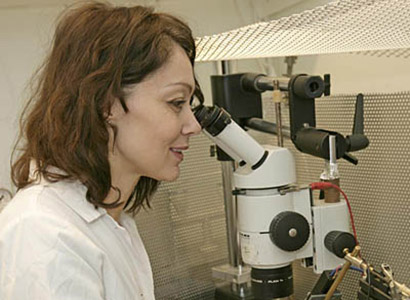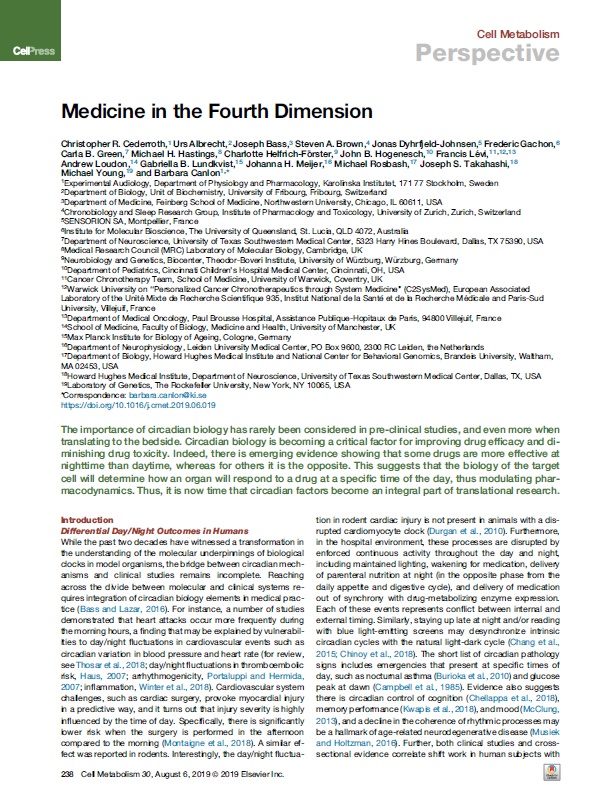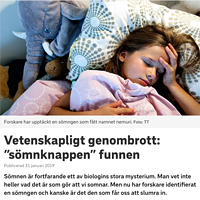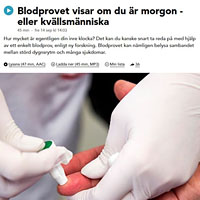Ageing, neurodegenerative diseases and certain psychiatric diseases are characterized by disturbances in circadian rhythmicity. The importance of circadian biology has rarely been considered when translating pre-clinical studies to the bedside.
Circadian biology is becoming a critical factor for improving drug efficacy and diminishing drug toxicity. Indeed, there is emerging evidence showing that some drugs are more effective at nighttime than daytime, whereas for others it is the opposite. This suggests that the biology of the target cell will determine whether an organ will respond to a drug at a specific time of the day, rather than pharmacodynamics. Moreover, a large part of biological research is performed using mice, which are nocturnal animals. Their metabolic rate and behavioral activity are very low during daytime, whereas humans who are day-active have a very high metabolic rate and activity during the day. Therefore, translating nocturnal animal findings into humans may cause significant difficulties and even scientific errors.
In a new debate article a number of prominent chronobiologists, including two of the Nobel Prize winners in Physiology or Medicine 2017 highlight the importance of acknowledging circadian physiology in biological research. The authors would like to make the biological community aware that it is now time that circadian factors become an integral part of translational research. Read the article as PDF-file
Read the article as PDF-file






